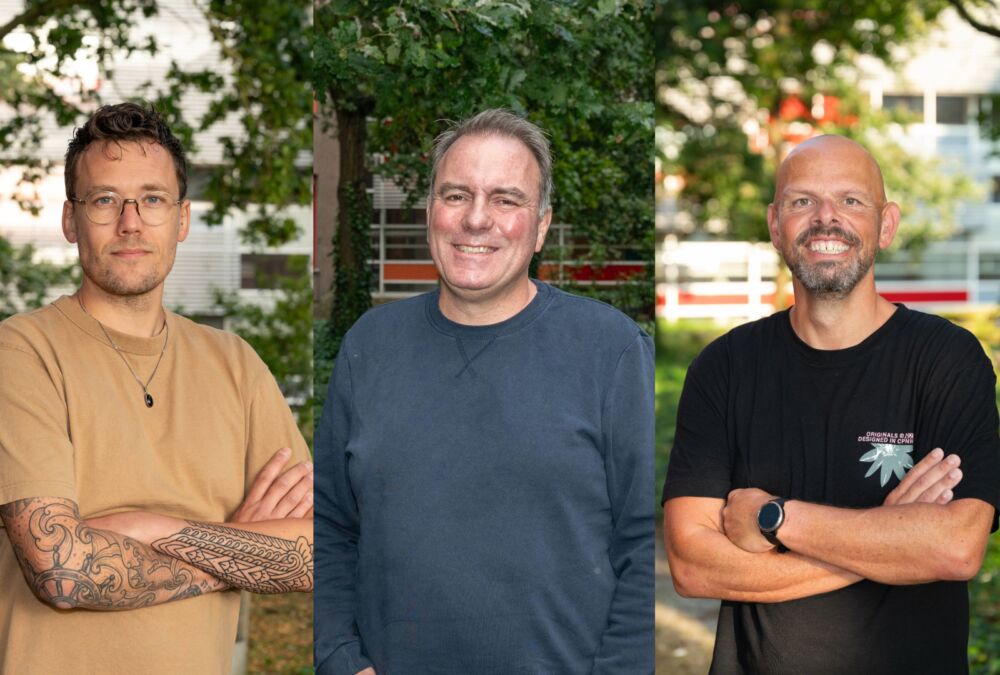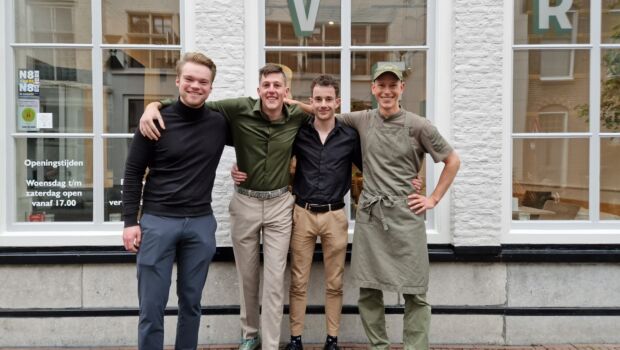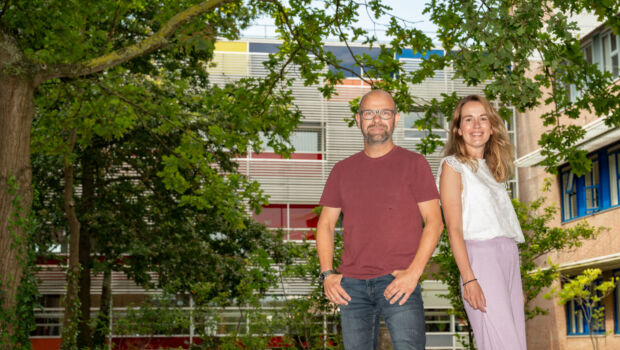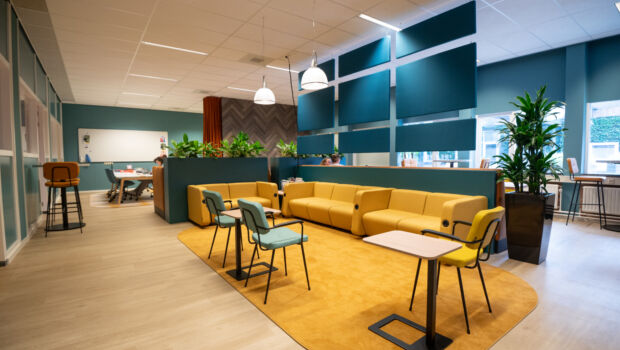In what ways do we ensure the quality of education within HZ? Education adviser Technology, Water & Environment (TWE) Riaan Lous, quality assurance coordinator Health, Education & Wellbeing (HEW) Michel Schroevers and chair of quality assurance coordinators Business, Vitality & Hospitality (BVH) Han van der Vinden explain what steps we are taking to create a culture of quality assurance.
As HZ, every few years we take part in the Institution Quality Assurance Test (ITK), but what exactly is quality assurance?
Han: "Quality is a concept that can be defined in 100 different ways. Ultimately, you want to ensure that your programme delivers the right quality. To this end, we have devised a number of instruments and documents to demonstrate quality. Within the BVH domain, having the cycles by which feedback is solicited is most important. What do students think of the programme? We put out surveys for that per block and with that information we improve the blocks. And what do teachers and the professional field think about the quality of the programme? What can be improved? That is what quality coordinators in our domain do. They continuously collect that information and use it to improve the quality of education."
Riaan: "May I add two more things from the TWE domain? The researchers and Applied Research Centres (ARCs) are increasingly providing input and feedback to improve the quality of education. We also look at the national consultations between the same programmes within the Netherlands. These outline a fair amount of frameworks that you have to implement as a study programme." Michel: "For me, it's also about what you do in your daily work in terms of quality assurance and how you demonstrate that. For an outsider, it should immediately be clear how we do it here at HZ. Feedback processes are important in this, but this also includes, for example, peer consultation. So a colleague looking at how you have designed your test and whether that is in line with what is stated in the training documents."
People often think that quality assurance coordinators are obsessed with paper. Instead, we want less paper, more connection.
What does it take to make quality assurance visible within HZ?
Michel: "My mission is to create as little paperwork as possible. Within education, there is an inherent urge to record things and this often takes up a lot of time. In my opinion, that time can be used more effectively by talking to each other. That's why I find the HZ-wide quality assurance meeting incredibly valuable. There we discuss the right issues with the right people without setting up a whole paper trail."
Han: "It's funny you say that. People often think quality assurance coordinators are obsessed with paper. Instead, we want less paper, more connection. We want quality assurance to be in the employees themselves."
Riaan: "It has to be in the culture, doesn't it? That's really what we want."
And what steps are you taking to make quality assurance more part of the culture?
Han: "We first make it clear to policy-makers or management that quality is not only reflected on paper, but also in the day-to-day operations. If you were to spend a day at a study programme, you should be able to sense that we deliver quality here. You notice this in people's behaviour and in the safe environment where feedback is asked for and received. I always find it striking that we require students to be able to reflect on their own work, but that we ourselves as teachers still do it too little."
I think there's much to be gained if we start speaking the same language throughout the entire organisation.
Michel: "What I am working on within the HEW domain is that all quality assurance coordinators have the same tasks, responsibilities and hours. There is a difference in that now. What do we expect from each other now? From a quality assurance coordinator? From a programme? I think there's much to be gained if we start speaking the same language throughout the entire organisation. That the documentation is clear and workable and not all on a G-disk, a Learn page, a OneDrive, a Teams environment. All the folders and documents drive you mad."
Riaan: "It drives everyone crazy."
Michel: "But still we keep doing it. That's silly, isn't it?"
Han: "There is a clear role in that for the HZ-wide quality assurance meeting to make a decision. How and where do we record our documentation?"
Riaan: "I think standardisation on certain elements is happening more and more, but there is diversity in that too. At the moment, that's also allowed. With us, that standardisation is, for example, in what tasks we can lay down domain-wide so that designated persons can focus on them and not each teacher individually."

And that HZ-wide quality assurance meeting, what does it look like?
Han: "We as quality coordinators and education advisors join the meeting, as do colleagues from the Department for Education, Research and Quality (DOOK). For a long time, we have been working on the question of exactly which documents programmes should produce, because these are requested during an accreditation or visitation. What kind of documents are they and how do you store them? We have spent a lot of time and attention on that over the past two years."
Riaan: "The review committee mentioned that we should have all important documents on a shelf, digital or otherwise. So last year we introduced the working term ‘The Shelf’. This is a bit of a joking term, but we mean by it that you should always have the most important documentation on The Shelf and be able to show it. That already removes a lot of ballast. The Shelf is something that came about within the HZ-wide quality assurance consultation and which I now see reflected within the programmes of the TWE domain."
Han: "This is what we mean by being continuously accredited. That you never have to search for the right documentation, but that it's just there."
Michel: "When I just started as quality coordinator, I asked all programmes within the HEW domain if they wanted to fill The Shelf. For me, that was very valuable to get a complete picture and see where there were gains to be made."
Riaan: "Did you also include your managers in this, Michel?"
Michel: "Yes, they also filled The Shelf."
Riaan: "That's super important, because then you know management is behind you. Sometimes that's the stick you need to bring about change."
Bring on that feedback!
We have talked about the documentation, but what tools are used to ensure the quality of education?
Riaan: "Since two years, we have been working with midterm reviews (MTRs), which take place between two visitations. One of the main ideas is that we really want less paper and more dialogue based on the culture of quality. The MTRs help constructively to improve the quality of education. Feedback is now more about developing rather than reckoning. We talk to each other about it and, as a result, we create a safer environment. Bring on that feedback!"
Han: "This is also how I experience it. The MTR is a tool that really helps you as an education. You might ask yourself, why is an MTR necessary if you are continuously worthy of accreditation anyway? I think it is good to have that interim check to see if you are on the right track. You can also see that some tension does arise within an education team, but that is also good from time to time. That tension keeps us on our toes."
Riaan: "I also like the fact that the MTR has colleagues from other programmes on the panel. Sometimes this is a programme manager, sometimes an education support staff member. They do this quite consciously, precisely to be able to look behind the scenes and learn from each other. What I also hear back from those teachers is that they learn from what they see at the study they visit."
Han: "We are concerned with the quality of education, but ultimately the goal is that quality should be experienced by every teacher. What I experience within HZ is that every teacher wants to perform the best for the student. You can also see this in our positive score on the National Student Survey (NSE)."






